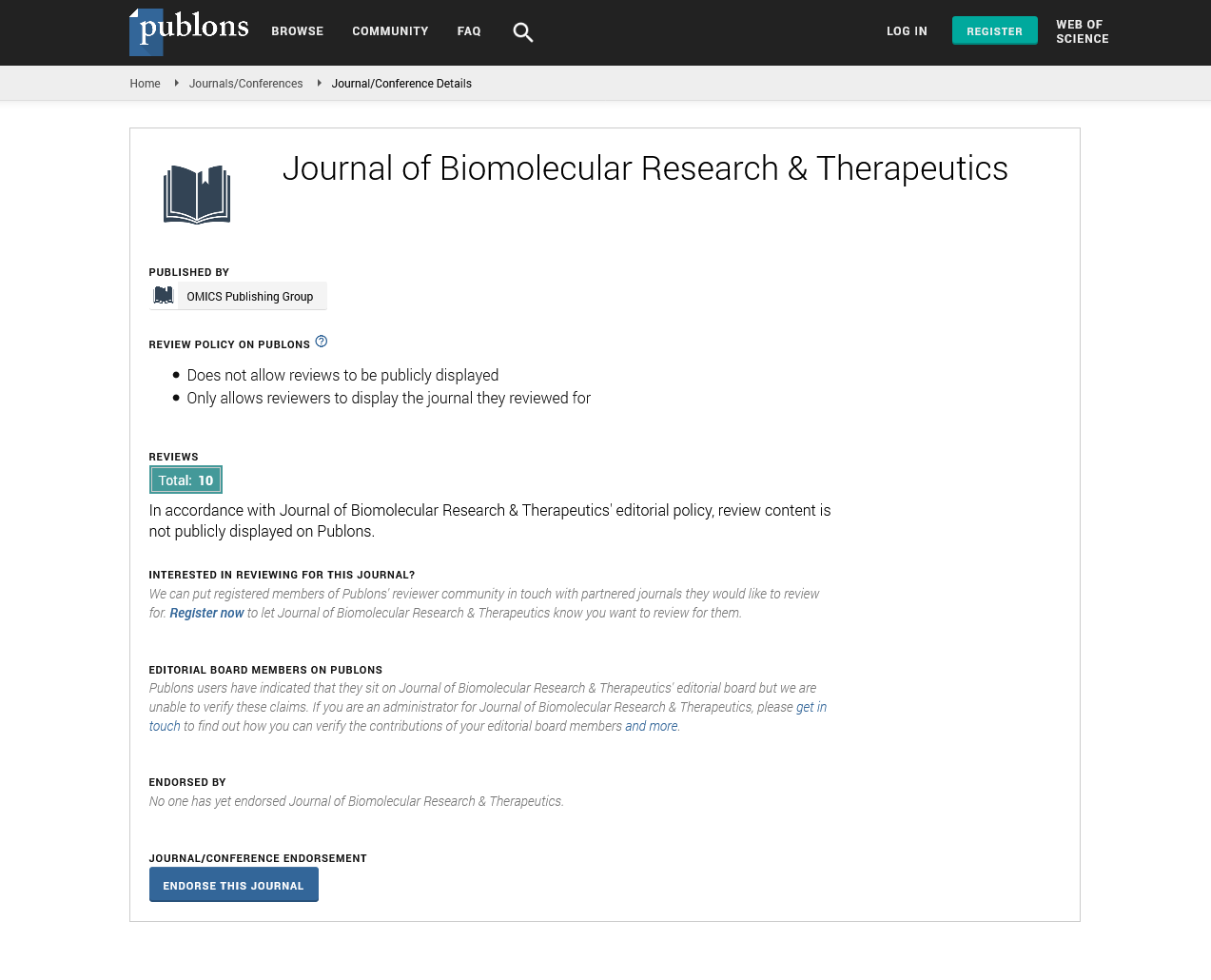Indexed In
- Open J Gate
- Genamics JournalSeek
- ResearchBible
- Electronic Journals Library
- RefSeek
- Hamdard University
- EBSCO A-Z
- OCLC- WorldCat
- SWB online catalog
- Virtual Library of Biology (vifabio)
- Publons
- Euro Pub
- Google Scholar
Useful Links
Share This Page
Journal Flyer

Open Access Journals
- Agri and Aquaculture
- Biochemistry
- Bioinformatics & Systems Biology
- Business & Management
- Chemistry
- Clinical Sciences
- Engineering
- Food & Nutrition
- General Science
- Genetics & Molecular Biology
- Immunology & Microbiology
- Medical Sciences
- Neuroscience & Psychology
- Nursing & Health Care
- Pharmaceutical Sciences
SophieVisvikis-Sieste
UMR INSERM U1122, IGE-PCV “Interactions Gene- Environnement en Physiopathologie Cardio-Vasculaire”, Faculté de Pharmacie, Université de Lorraine, Nancy, France
Biography
Sofia Siest (Sophie Visvikis-Siest), PhD, was born in Athens, Greece, where she obtained a diploma of Biology. She received a PhD on Genetic Epidemiology of Cardiovascular Diseases at the University of Nancy, France. Dr Sophie Visvikis-Siestâs main research interests are in the domain of public health, aging, personalised medicine, prevention, genetic epidemiology, genomics and pharmacogenomics, cardio-vascular diseases, VEGF and inflammation. She has published more than 330 papers in international scientific committee journals. She is the President of the Santorini Conferences Association (SCs) and of the âSantorini Conferencesâ held every 2 years since 2002 in Santorini, Greece, in the field of Genomics, Pharmacogenomics and Personalised Medicine. Vascular endothelial growth factorâA (VEGFâA) is implicated in angiogenesis, lymphangiogenesis, vascular permeability, and hematopoiesis. It is associated with numerous age-related pathologies including cardio-vascular diseases and several types of cancer.
Publications
-
Research
Establishing a Remedy for Phenylketonuria Disease from Indian Ayurvedic Herbs
Author(s): Preenon Bagchi*, SophieVisvikis-Sieste and Ajit Kar
The phenylketonuria (PKU) disease is an inherited disorder that increases the levels of a substance called phenylalanine in the blood and if not treated, phenylalanine can build up to harmful levels in the body. People with this disorder can't break down the amino acid phenylalanine. This phenylalanine, then builds up in the blood and brain causing intellectual disability and other serious health problems. It is rare but a serious inherited disorder. The main objective of this study is to establish a remedy for the phenylketonuria disease (novel drug leads for phenylketonuria disease’s receptors viz. ASCL1 gene (achaete-scute family bHLH transcription factor 1), GCH1 gene (GTP cyclohydrolase 1) and MAOB (Monoamine Oxidase B)) using phytocompounds from ayurvedic herbs. To achieve this objective we performed virtual screening with phytocompounds from ayurvedic herbs against th.. View more»

